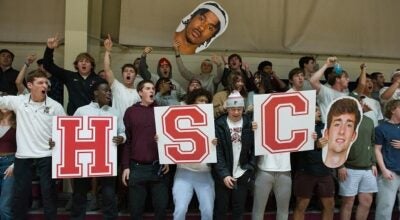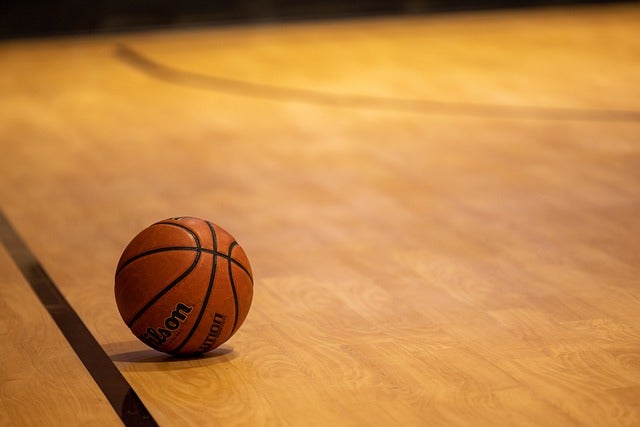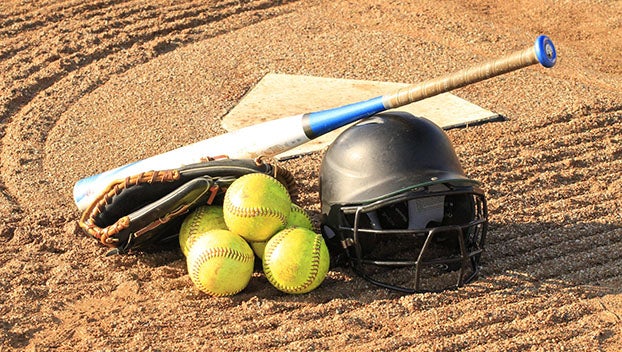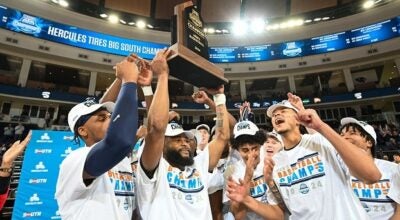New DYB Composite Bat Rule Sends Some Scrambling
Published 4:30 pm Thursday, January 27, 2011
Before you head out to the sporting goods store to get that brand new bat for your Dixie Youth Baseball-aged youngster, take heed. New rules announced just last weekend have altered the type of bat that's allowed.
The Dixie Youth Baseball Board of Directors has placed a moratorium on the use of all composite bats effective immediately.
The ruling, which came after a Bat Performance Factor (BPF) study conducted by the University of Massachusetts-Lowell showed that legal out of the wrapper composite bats that meet standards can exceed the standard after a break-in process.
Local Dixie Youth Baseball officials learned of this change last weekend at a meeting.
“They told us that the study found that as the graphite fibers on a composite bat get broken in, the trampoline effect increases,” said Buckingham County Youth League representative Kevin Flippen, who has managed several Buckingham Dixie Youth Baseball teams over the years. “As a result of the study, most of the larger youth baseball leagues have taken action to ban or put a moratorium on composite bats.
“When aluminum bats break down, they just go dead, but that's apparently not the case with composite bats.”
“At the meeting, I was talking with a representative from Botetourt who ran into an illegal bat situation at a softball tournament,” said Prince Edward Farmville Youth Association representative Bruce Davis. “They tested 200 bats, and out of those, 50 were illegal. Those were bats that would've been legal when they were brand new, but as the graphite fibers break in, the bats keep getting stronger.”
Dixie Youth Baseball belongs to USA Baseball, which includes your major youth leagues, like Cal Ripken and Little League.
Little League Inc. banned composite bats, but has said it will give BPF-conforming composite bats waivers.
Through a release on its website, Dixie Youth Baseball has stated that it will enforce the moratorium on all composite barrel bats for the 2011 season, and will give no waivers.
“Unlike Little League Baseball, Dixie Youth Baseball is a volunteer organization,” said Flippen. “As such, [DYB] doesn't have the resources to test every individual composite bat manufactured, so I think that's why Dixie has chosen to do an all-out moratorium.”
“This is something I guess Dixie could change as Little League continues to study things,” said Davis. “But I hope that once the season begins, they don't start switching things around – even for the tournaments. There is no need to change rules during the season, as that could get confusing.”
Feedback from parents who have already purchased bats has been mixed, at best. Flippen said that reaction was more about the timing of the moratorium, than the action itself.
“Bats can get quite expensive,” said Flippen. “We had one parent who purchased a $400 bat that was legal after the rule book came out. It's now illegal. Many of the parents I've talked to have expressed that this is something that should've been announced before Christmas.”
“I haven't heard many comments,” said Davis, who also noted that the only real negative feedback was that the change came in January. “But we'll see how that goes once the season starts.”
“I understand what [DYB] is saying in terms of it being a safety issue,” said Cumberland Youth League representative Travis Gilliam. “But the timing could've been a lot better.”
The Cumberland Youth League has several league-purchased bats that no longer conform to the new policy.
“We decided as a league to purchase league-owned bats and helmets so equipment cost wouldn't be a factor in whether a child can play or not,” said Gilliam, who added that the league owns around seven non-conforming bats in addition to a larger number of aluminum bats. “Not every composite bat is a $400 bat. We don't have that kind of money tied up in any of the ones we own, but some of our kids who use their own bats probably do.”
Neither PEFYA or the BCYL buy league-owned bats, but both Davis and Flippen said that arrangements have been made if equipment costs become a factor in whether a child can afford to play or not.
“We're not going to turn a kid away, because he doesn't have a bat,” said Davis. “We can figure out something.”
Individual leagues can choose whether or not to enforce any policy in regular-season league play, meaning that a league could choose to not abide by the moratorium for regular-season play.
None of the three local DYB-affilliated leagues will go against the National Board's ruling.
“We decided as a board that it could open up some legal issues we couldn't afford, should we decide to ignore the league ruling,” said Flippen. “If we were to allow them for the regular-season, and than a child got hurt by a ball coming off a composite bat, it would be a hard position to defend, since our National organization had placed a moratorium on the bats.
“Plus, you don't want the kids to have to get used to another bat when it comes time for the All-Stars Tournaments.
“I just feel sorry for the parents who have purchased one of these bats, thinking at the time that they bought a legal bat. Once they've been taken out of the wrapper, I can't see a store taking them back. The stores already have a bunch of bats they now can't sell. It's quite frustrating.”






